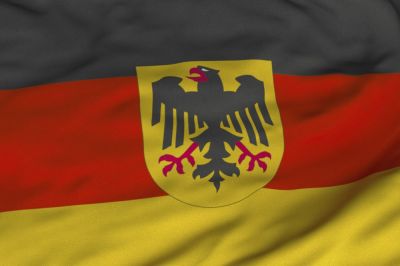Germany - first cycle programmes
Population (mln): 81,75
Official language/s: German
Time zone: UTC+1 Winter, UTC+2 Summer
Internet TLD: .de
Calling code: +49
Member of the EU from: 25 March 1957
Unemployment rate Sep 2011 (%): 5,8
Unemployment rate under 25 years Sep 2011 (%): 8,3
Unemployment rate Sep 2012 (%): 5,5
Unemployment rate under 25 years Sep 2012 (%): 8,0
Population statistics 20-29 age group 2011 (%): 12,1
Country codes in education system: DE
Expected duration of education (years): 17,7
FACHHOCHSCHULEN
(Universities of applied sciences): offer application-oriented study courses
mainly in Engineering, Economics, Social Work, Public and Legal Administration
and Health and Therapy.
A Diplomgrad (Diplom degree) is awarded after the
Diplomprüfung (Diploma examination), e.g. Diplom-Ingenieur (FH). The initials
"FH" are added to the Diplom degrees of the Fachhochschulen.
According to the Regelstudienzeit (standard period defined for each period of
study), a degree programme at Fachhochschulen should be completed in 8
semesters (2 semesters = 1 academic year), including one or two practical
semesters. Success in the final academic examination usually qualifies the
candidate for a particular profession.
Some Fachhochschulen have adopted a
similar approach to the Berufsakademien, particularly in Engineering and
Business Management and have introduced courses that combine academic studies
with on-the-job training, along the lines of a dual system. These courses are
called dual courses of study (duale Studiengänge). The students have training
or employment contracts. Fachhochschulen also confer Bachelor's and Master's
degrees.
The new graduation system introduced in 1998 supplements the
traditional Diplomgrad conferred by the Fachhochschulen. For courses with a
more theoretical orientation the Bachelor/Master of Arts or Bachelor/Master of
Science is awarded. In the case of study courses that are more application
oriented the actual degree has a subject-related supplement (e.g.
Bachelor/Master of Engineering).
UNIVERSITIES: Stage I, or basic studies
(Grundstudium), usually lasting four semesters (2 academic years) at
universities culminate in an intermediate examination (Diplom-Vorprüfung,
Zwischenprüfung). This examination gives the right to continue in Stage II
(Hauptstudium).
A degree is not awarded. Since 1998, a basic higher education
degree within the new graduation system of consecutive study courses, the
Bachelor (or Baccalaureus) has also been introduced in universities requiring a
minimum of three years' study (maximum four years). It normally leads to a
career.
